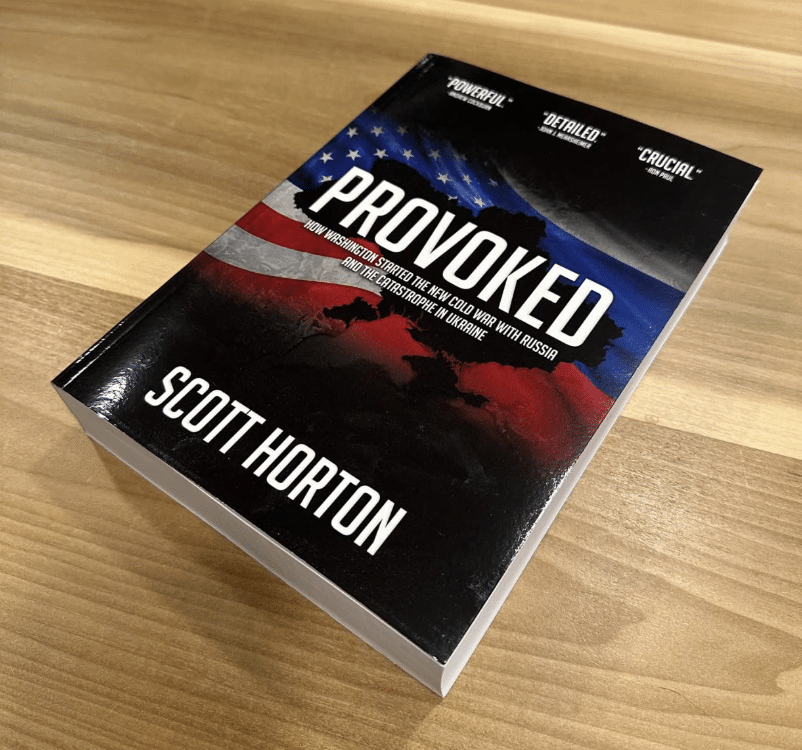This article was originally featured at The American Spectator and is republished with permission.
NATO’s top military officials recently met with President Volodymyr Zelensky, touring a long-range weapons plant and discussing continued military aid, even as most Ukrainians desperately want an end to the war. After almost three years of relentless fighting, with hundreds of thousands dead or wounded and cities reduced to rubble, the appetite for continued conflict is fading. Despite mounting losses and dwindling morale, Zelensky has confirmed a new Ukrainian offensive in Russia’s Kursk region, ensuring the war drags on.
The situation has deteriorated to the point where, as Remix News—a conservative European outlet known for exposing media bias and Western hypocrisy—recently reported, Zelensky has resorted to forcibly conscripting men off the streets. Disturbing accounts describe Ukrainian men being seized from cafés and nightclubs and shoved into vans like fugitives. Under martial law, there is no escape — no right to leave, no right to refuse.
This grim reality is precisely what Scott Horton unpacks in Provoked: How Washington Started the New Cold War with Russia and the Catastrophe in Ukraine. His leaves no doubt—Ukraine is not just losing; it was set up to lose from the very start. Horton does not absolve Russia—far from it. He acknowledges that Vladimir Putin’s decision to invade Ukraine in February 2022 was a brutal, illegal act of aggression.
But the book’s strength lies in its refusal to accept the simplistic, manufactured narrative that the war is merely a battle between good and evil, between Ukrainian democracy and Russian autocracy. Instead, Horton forces the reader to confront a more uncomfortable reality: this war was not inevitable, but it was engineered.
Horton maintains that decades of Western arrogance, interventionism, and broken promises created the crisis we see today. He traces the roots of the conflict back to the 1990s when NATO expansion directly contradicted assurances given to Russia after the fall of the Soviet Union. American and European leaders, eager to consolidate their influence over Eastern Europe, repeatedly dismissed Moscow’s security concerns, expanding NATO’s reach closer and closer to Russia’s borders. This, Horton argues, was not a defensive strategy but a provocation—one that fundamentally reshaped Russia’s view of the West and set the stage for future confrontations.
The tipping point, in Horton’s view, came in 2014, when the United States and its allies played a crucial role in the ousting of Ukraine’s democratically elected, pro-Russian president, Viktor Yanukovych. While Western media framed the event as a spontaneous pro-democracy uprising, Horton details the extensive U.S. involvement, from funding opposition groups to direct intervention by diplomats like Victoria Nuland, who infamously discussed handpicking Ukraine’s next leader. To Moscow, this was a blatant coup—a clear sign that Washington was willing to reshape Ukraine’s political landscape to suit its own strategic interests, regardless of the consequences.
From that moment on, Ukraine was no longer merely a neighboring country to Russia; it became a key battleground in a broader geopolitical struggle. Horton obliterates the notion that Ukraine had full sovereignty over its fate, arguing instead that Washington and Brussels had been pulling the strings for years, steering Ukraine down a collision course with Russia.
Instead of acting as a neutral buffer state, as some realists had long advised, Ukraine was transformed into a frontline state for Western interests. Horton also urges readers to confront another uncomfortable reality: Ukraine has long been one of the most corrupt countries in Europe, making the funneling of ever more Western money into the war a losing strategy.
The media, he argues, has been instrumental in selling a distorted version of reality. Western outlets, which once played a critical role in exposing the lies that led to the Iraq and Afghanistan disasters, now operate as unquestioning mouthpieces for government talking points. Reports of catastrophic Ukrainian losses are buried. Meanwhile, every minor Russian setback is magnified to give the illusion that victory is still within reach.
Horton’s research is meticulous, and his conclusions are devastating. Ukraine, he insists, has no path to victory. The country is outmanned, outgunned, and reliant on Western support that is increasingly uncertain. Washington, London, and Brussels continue to send weapons and aid, but no amount of foreign assistance can change the fundamental imbalance on the battlefield.
Of course, none of this means Russia is justified in its actions. Horton is clear on this point. Putin’s invasion was a calculated gamble—one that has resulted in immense suffering, displacing millions and turning entire cities into graveyards.
But Horton is not interested in moral grandstanding; he is a realist. A staunch anti-war advocate, Horton understands that battles of this magnitude are never as simple as heroes versus villains, and that blind allegiance to a manufactured narrative prevents any meaningful resolution.
To accept the mainstream Western narrative uncritically is to participate in a mass delusion—one that ignores the West’s role in stoking tensions, dismisses any diplomatic off-ramps, and traps Ukraine in an unwinnable war. Horton’s message is not about excusing Putin’s predations; it’s about recognizing the patterns of manipulation that have led to yet another war with no exit strategy, no realistic path to victory, and no regard for the people suffering on the ground.
Provoked is not just a book about Ukraine; it is a warning about the dangers of self-deception in foreign policy. It is a plea to resist the consensus, to question the narratives fed to us by governments and media conglomerates, and to recognize that while Russia bears responsibility for its actions, the West is far from innocent. In the end, the greatest tragedy of this war may not be Ukraine’s inevitable defeat—it is that it never had to happen in the first place.
The Trump administration has said it believes that bringing the war to an end through diplomacy should be the primary objective. It won’t be easy, but at least he seems to understand that ending this war is not about appeasing Russia; it’s about preventing further bloodshed, about stopping a conflict that has already hollowed out Ukraine and left its future hanging in the balance. At some point, the West must decide whether it truly stands for Ukraine’s survival or for a war with no end in sight.

































